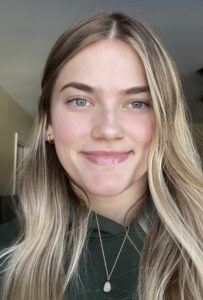Studying Microorganisms? It’s a Great Way to Make a BIG Impact
 Kaitlyn Gaffney ‘21 fell in love with science at a young age. More than anything else, Gaffney appreciated the fact that there are always new discoveries to be made – discoveries that have the potential to aid other people, even people you may never meet. That led her to earn a bachelor’s degree in biology from Le Moyne and a master’s degree in forensic science from Syracuse University. A Watertown, N.Y., native, she now works as a biologist for the American Type Culture Collection (ATCC). Gaffney is part of a team of scientists contributing to the ATCC’s genome portal, which provides a complete set of genetic information for thousands of organisms. Her particular role – extracting microscopic DNA from various samples – sounds complex. And it is. But it is also extremely fulfilling. Every day she helps provide scientists with the reliable, high quality resources necessary to help advance their research in ways that not only contribute to the overall body of knowledge, but have the capacity to make people’s lives demonstrably better.
Kaitlyn Gaffney ‘21 fell in love with science at a young age. More than anything else, Gaffney appreciated the fact that there are always new discoveries to be made – discoveries that have the potential to aid other people, even people you may never meet. That led her to earn a bachelor’s degree in biology from Le Moyne and a master’s degree in forensic science from Syracuse University. A Watertown, N.Y., native, she now works as a biologist for the American Type Culture Collection (ATCC). Gaffney is part of a team of scientists contributing to the ATCC’s genome portal, which provides a complete set of genetic information for thousands of organisms. Her particular role – extracting microscopic DNA from various samples – sounds complex. And it is. But it is also extremely fulfilling. Every day she helps provide scientists with the reliable, high quality resources necessary to help advance their research in ways that not only contribute to the overall body of knowledge, but have the capacity to make people’s lives demonstrably better.
The idea that your vocation should somehow be used to help others has long appealed to Gaffney. However, it grew even more important to her during her time at Le Moyne, where the Jesuit ideal of magis, or doing or being more, is celebrated, and concepts like discernment, solidarity and reflection were at the forefront of both her major and Core courses. Gaffney credits her time on the Heights with helping her to become a sharper critical thinker, which is critical in a field like science that calls for precision, repetition and a healthy level of skepticism. Her experience as an undergraduate also instilled in her a desire to be a lifelong learner, the someone who is constantly curious and committed to asking questions.
Gaffney’s experience has led her to the conclusion that, at its core, science “is simply a journey of curiosity and exploration.” The research that is currently being done in areas such as the human microbiome and the interactions organisms have with one another within a community make this a particularly interesting time to take on this work. She firmly believes that the world needs more meticulous, patient and independent-minded scientists. That is why, while still early in her career, she is passionate about encouraging other young people to consider pursuing the sciences, particularly her specialty of microbiology. As her professors did for her, she advises them to be engaged, to ask questions, and to look for opportunities to gain experience, for example as interns or undergraduate researchers.
“I want other young people to be drawn to science for the same reason that I was,” she says. “There is so much that you can do with it. I hope to inspire other people to [consider] a scientific career and to support and collaborate with others, working toward advancements that benefit society.”
This is part of a series of stories about the study of biology at Le Moyne.


